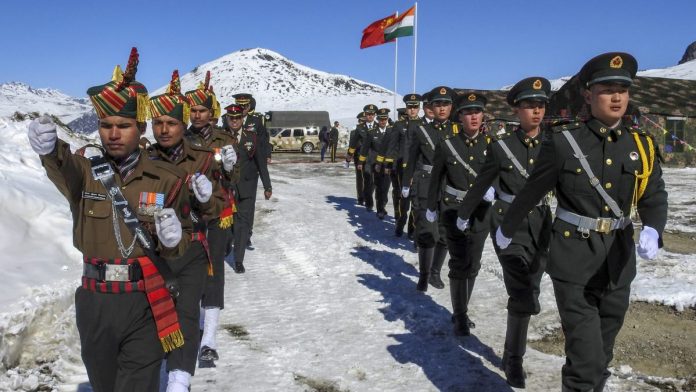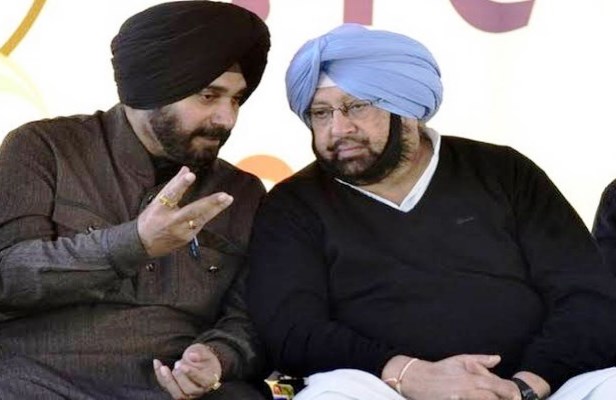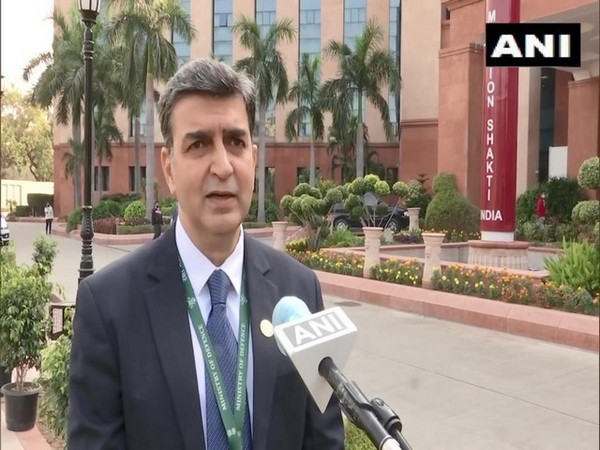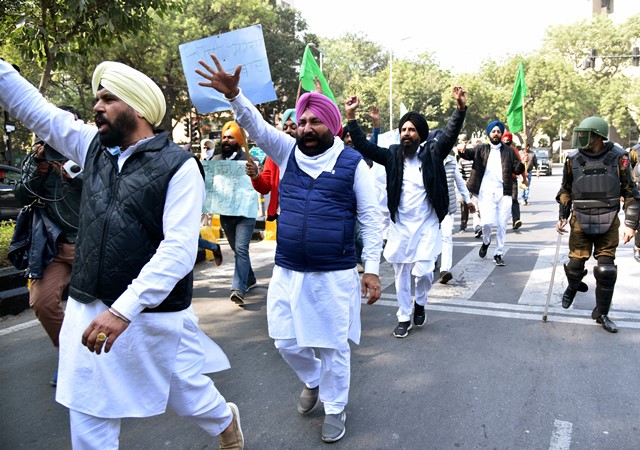Punjab Chief Minister Captain Amarinder Singh’s tweets on Thursday alleging that the Haryana government was provoking farmers and resorting to force to prevent them from marching to Delhi evoked a sharp response from his Haryana counterpart Manohar Lal Khattar who hit back at the former for “inciting innocent farmers”.
In a series of tweets, Amarinder Singh said the farmers protested peacefully for two months in Punjab, and on Constitution Day, their constitutional right was oppressed by Haryana government by using force against them.
“For nearly two months farmers have been protesting peacefully in Punjab without any problem. Why is the Haryana government provoking them by resorting to force? Don’t the farmers have the right to pass peacefully through a public highway?” Amarinder posted on Twitter tagging Khattar.
“It’s a sad irony that on Constitution Day 2020 the constitutional right of farmers is being oppressed in this manner. Let them pass Manohar Lal Khattar Ji, don’t push them to the brink. Let them take their voice to Delhi peacefully,” Amarinder Singh said in another tweet.
He further urged BJP to direct “their state governments” to not indulge in strong-arm tactics against the farmers.
“Urge BJP to direct their state governments not to indulge in such strong-arm tactics against the farmers. The hands that feed the nation deserve to be held, not pushed aside,” he said in another tweet.
In response to this, Haryana Chief Minister accused Amarinder Singh of “inciting farmers”.
“Captain (retired) Amarinder Singh ji, I’ve said it earlier and I’m saying it again, I’ll leave politics if there’ll be any trouble on the MSP – therefore, please stop inciting innocent farmers,” he said.
Khattar further said that he was trying to reach his Punjab counterpart from the past three days without any response from the other said, and questioned Amarinder Singh’s seriousness about farmers and their issues.
“I’ve been trying to reach out to you for the last 3 days but sadly you decided to stay unreachable – is this how serious you are for farmer’s issues? You’re only tweeting and running away from talks, why?” Khattar asked.
“Time for your Lies, Deception and Propaganda is over – let the people see your real face. Please stop putting the lives of people in danger during the Corona pandemic. I urge you to not play with the lives of the people – at least avoid cheap politics during the time of the pandemic,” he added.
Replying to Khattar’s allegations, Amarinder Singh said it is the farmers who’ve to be convinced on MSP, and not him. He further asked if he’s the one inciting farmers, then why farmers from Haryana are also marching.
“Shocked at your response Manohar Lal Khattar Ji. It’s the farmers who’ve to be convinced on MSP, not me. You should’ve tried to talk to them before their Dilli Chalo. And if you think I’m inciting farmers then why are Haryana farmers also marching to Delhi?” asked the Punjab Chief Minister.
“As for endangering lives during COVID-19, have you forgotten that it was BJP led central government that pushed through those Farm Laws amid the pandemic, uncaring about the impact they’d have on our farmers? Why didn’t you speak out then Manohar Lal KhattarJi,” he added.
Earlier today, security personnel used tear gas to disperse the protesting farmers at Shambhu border between Punjab and Haryana.
The protestors were marching towards Delhi against new farm laws which they believe will reduce their earnings, making large retailers more powerful.
Prior to that, Police used water gas to disperse the crowd of angry farmers pelted stones at security forces deployed to control the crowd at the Shambhu border.
Farmers have given a call for “Delhi Chalo” protest march, to coincide with the Constitution Day celebrations, against new farm laws.
While the government says the three laws will do away with middlemen, enabling farmers to sell their produce in the commercial markets, protestors fear that this could lead to the government not buying produce at guaranteed prices, thereby disrupting their timely payments. (ANI)








